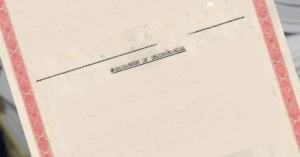Have you ever heard of an adverse claim? It’s a term that may sound complicated, but it’s important to understand, especially if you find yourself in a situation where the ownership of a piece of real property is being disputed. In simple terms, an adverse claim is a way to notify others that there is a controversy over the ownership of a piece of land and to protect the rights of the claimant during the ongoing dispute.
So, how does an adverse claim work? Let’s break it down.
An adverse claim is an involuntary dealing that serves as a notice to third parties that there is a disagreement over the ownership of a particular property. It aims to inform others that any transaction involving the disputed land is subject to the outcome of the dispute. In the Philippines, an adverse claim is used when there is no other provision in the law for registering the claimant’s alleged right or interest in the property.
To annotate an adverse claim on the Certificate of Title, certain steps must be followed. According to Section 70 of PD 1529, the claimant must submit a written statement that fully explains their alleged right or interest in the property. The statement should include details such as the registered owner’s name, the certificate of title number, and a description of the land in question. The statement must be signed and sworn to by the claimant and should provide their residence and a place where notices can be served. Once registered, the adverse claim remains effective for 30 days.
If someone wishes to cancel the annotation of an adverse claim, a court action must be filed through a verified petition. This legal process is necessary to physically remove or erase the annotation from the Certificate of Title. As per Section 108 of PD 1529, no erasure, alteration, or amendment can be made to the registration book without a court order. Therefore, the claimant needs to seek a court order to have the adverse claim removed from the certificate.
Can a conditional sale or contract to sell be annotated on the Certificate of Title as an adverse claim?
It must be emphasized that the availability of the special remedy of an adverse claim is subject to the absence of any other statutory provision for the registration of the claimant’s alleged right or interest in the property. That if the claimant’s interest is based on a perfected contract of sale or any voluntary instrument executed by the registered owner of the land, the procedure that should be followed is that prescribed under Section 51 in relation to Section 52 of P.D. No. 1529.
To be sure, it’s worth noting that a conditional sale or contract to sell should not be annotated as an adverse claim. Voluntary instruments like these have their own registration procedures, and an adverse claim should only be used when there is no other provision for registering the claimant’s right or interest. In cases where the claimant’s interest is based on a voluntary instrument executed by the registered owner, the appropriate procedure is to present the owner’s duplicate certificate to the Register of Deeds for the proper annotation.
Understanding the concept of adverse claims is crucial when dealing with property disputes. By following the correct procedures and seeking legal guidance, individuals can protect their rights and ensure a fair resolution to ownership controversies.
Need assistance with adverse claims? Contact DOMINIUM Land/Condominium Title Service at 625 Vinia Residences Philam, EDSA Southbound, Quezon City. Email us at inquiry@dominium.ph or call 09453163019 for expert support.




